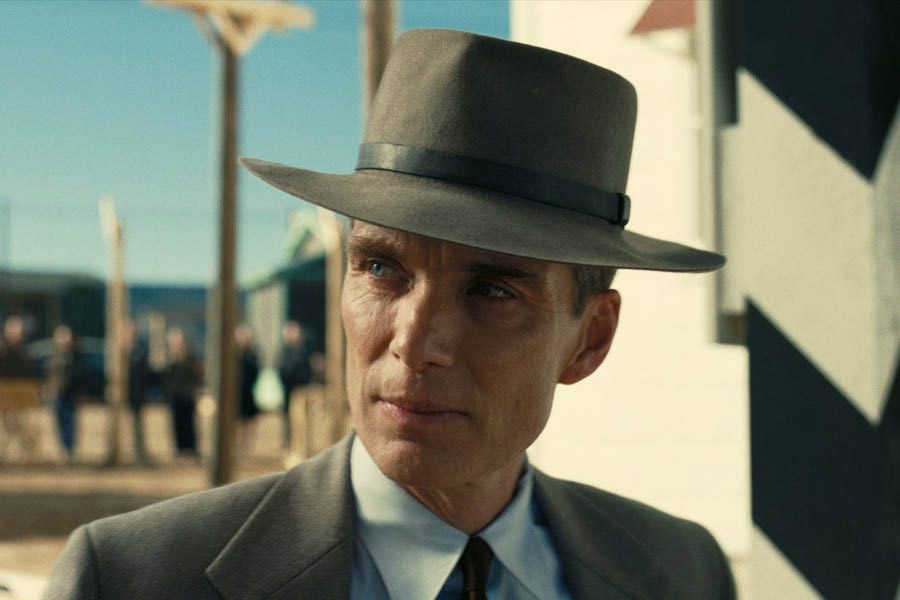There’s no more disappointing cinematic experience than sitting in a theater trying to convince yourself the movie you’re watching is any good. The first hour of Oppenheimer, Christopher Nolan’s biopic of the father of the atomic bomb, has hints that this could be the epic promised by the trailer and the director’s resume. So what if it seems to be edited by a meth head who can’t hold on a shot for more than a nanosecond? There are so many beautifully composed frames and so many big name actors dressed in mid-twentieth century wardrobe. Surely all these fragmented scenes will come together by movie’s end, right?
And then the second hour comes and you’re rewarded with a masterful scene displaying the first ever atomic bomb test in New Mexico. It is exactly what you were hoping for. There have been so many explosions in so many movies, but this one is somehow unique. So now you can write the glowing review you wanted to write so badly for this movie?
No. Because Oppenheimer keeps going and going and going with no insight on the man for which the movie was named. By the end of the third deafening hour, you are exhausted and defeated unsure what you just saw and why it felt so hollow.
The obvious answer is the screenwriter Christopher Nolan failed the director Christopher Nolan. A few years ago Nolan made what I consider a disjointed masterpiece in Dunkirk. He spliced together a bunch of chaotic scenes that didn’t come together as a conventional story. It was almost more of a conceptual art piece than Hollywood movie, with the message that war is chaotic hell. You didn’t get a sense of any of the characters, but that was ok since World War 2 basically was the protagonist.
That trick doesn’t work for a biopic. Cillian Murphy, the actor who plays Oppenheimer, is in 95% of the scenes of this movie. But at no time do they attempt to show you who this person was and what made them tick. Instead they throw in enough plot for two movies. The first that was promised in the trailer, could have been great. It tells about the creation of the atomic bomb. There are so many interesting stories that could have been told about what one character describes as, “the most important thing to ever happen in the history of the world”.
But the movie chooses instead to focus nearly half its running time on post-war government security hearings where Oppenheimer was accused of being a Communist. That could have been interesting if it gave us a peek into Oppenheimer’s psyche, but instead it seems to be just creating space to give more familiar faces a chance to have a lengthy monologue. Look, there’s Iron Man playing a bureaucratic heavy. Whoa is that Mr. Robot chewing up scenery at congress? Is that someone famous playing Albert Einstein?
This kind of stunt casting is fun for comedies or popcorn movies, but it takes you out of any serious introspection this movie advertised itself as provoking. Instead you’re left mulling over only one question.

